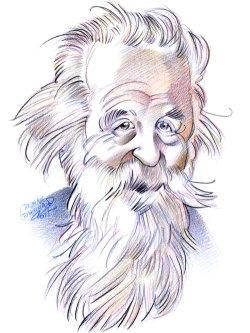Bachelard, Gaston (en anglais)
Publié le 22/02/2012

Extrait du document


«
understanding not only his own work, but also that of Althusser and the followers of Lacan .
In France, Bachelard
has been criticized by postmodernists for remaining faithful to some of the methods of critical philosophy, and by
Marxists for his humanism.
His works on poetics inspired many of the French New Critics (see French philosophy
of science §§1-2 ).
2 The new scientific spirit
To have taught science in the early part of the twentieth century is to have experienced dramatic changes in the
character of physics and chemistry.
Relativity theory and quantum mechanics did not represent simple additions to,
or corrections of, existing science; their acceptance entailed the disruption of the whole framework of classical
physics, requiring modifications in the concepts of space, time, causality and substance.
These are the concepts
which, according to Kant , are constitutive not merely of the framework of classical physics, but of our conception
of the physical world.
As such they are vital to the way in which the distinction is drawn between inner and outer,
subject and object.
Bachelard's epistemology is the result of absorbing the radical implications of these
developments.
The fact that physics has reworked the very categories which Kant took to be a priori, grounded in the nature of the
rational subject, invalidates any philosophy which starts from the presumption of a fixed rational framework,
whether found in formal logic, the structures of discourse or the rational subject.
Similarly, Bachelard argues,
science has reworked its empirical base.
Sensory observation of given, natural objects has been replaced by the
technologically mediated preparation of laboratory objects and phenomena.
The objects of scientific investigation
are made, not found; they are defined via their method of preparation or technical detection.
We have passed from
phenomenology to phenomeno-technique.
Modern science thus requires us to put aside any epistemology erected
on the foundation of the empirically given, whether sense-data or naturally occurring phenomena.
The epistemology of modern science cannot, therefore, be accommodated within a foundational epistemology,
whether rationalist or empiricist; it is necessary to move to the open rationality of a non-Cartesian epistemology.
As Bachelard reaches this conclusion he is led to introduce new concepts expressed in unfamiliar terminology:
'epistemological break' ('rupture' ), 'epistemological value' , 'epistemological obstacle' , 'recurrent history' and the
distinction between 'lapsed' and 'sanctioned' knowledge (see Incommensurability §1 ; Kuhn, T.S.
§2-3 ).
Bachelard finds the clearest examples of what he calls 'dialectical reasoning' in mathematics.
This is the reasoning
characteristic of the open rationality of the new scientific spirit, which must reject the closed rationality of
classical science as it moves beyond it and is aware of its own transitions.
Bachelard's sense of dialectic is very
much his own, and is not to be confused either with Hegelian or Marxist dialectic.
A dialectical move, such as that
from Euclidean to non-Euclidean geometry, takes one from a limited system, a framework which is closed in a
certain respect, to one which is more general by being open in this respect.
A dialectical development constitutes.
»
↓↓↓ APERÇU DU DOCUMENT ↓↓↓
Liens utiles
- MATÉRIALISME RATIONNEL (LE), 1953. Gaston Bachelard - résumé de l'oeuvre
- FORMATION DE L’ESPRIT SCIENTIFIQUE (LA). Gaston Bachelard
- POÉTIQUE DE LA RÊVERIE (La). Gaston Bachelard
- PHILOSOPHIE DU NON (La) de Gaston Bachelard
- NOUVEL ESPRIT SCIENTIFIQUE (Le) de Gaston Bachelard (résumé)

































